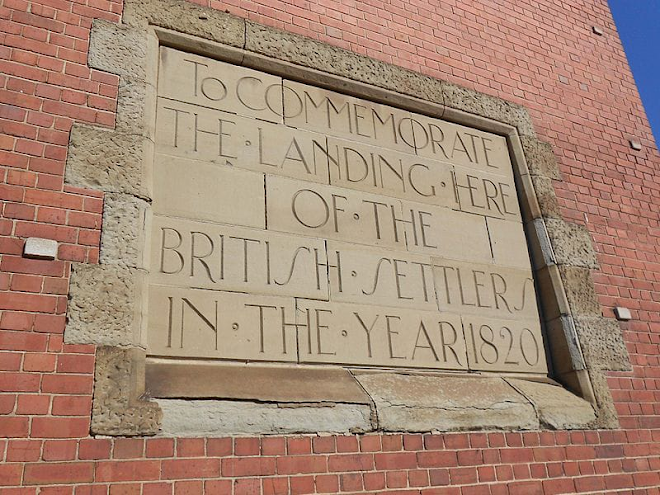Sir Rufane Shaw Donkin
The life of Sir Rufane Donkin is a remarkable and honourable one. Sir Rufane Donkin was born in 1773 and died in Southampton England in 1841. He was born of a military family, his father Robert Donkin was a greatly respected General.
Sir Rufane Donkin Joined the army at the age of five under his father's command and later served in the 11th Light Foot and the 44th Light Foot Regiment. In 1793 he received the rank of Captain, 1776 Major and at the age of 25 was promoted to the rank of Lt General.
He lead a Battalion with distinction and received the KCB. Later the British government deployed him in India. He was in active service in the West Indies in 1794 and in the Ostand expedition. He honoured his country and served wherever they required him.
His life is also one of romance and undying love. He married Elizabeth Markham in Yorkshire under a traditional organised marriage which was the custom in those times for the social upper classes. But Sir Rufane Donkin truly fell in love with his beautiful young wife. In most cases the wives of high ranking military officials stayed at home while their husbands were abroad. However Elizabeth Donkin chose to be with her husband and traveled with him to India where she was to become seriously ill, and died in August 1818 after their first son George David was born.
The effect on Sir Rufane Donkin after her death was immense, and to such an extent was placed on leave from his post, however he was given the task of organising the 1820 Settlers in Port Elizabeth. He was officially the first governor of PE from the 6 June 1820 - 1821. His wife Elizabeth was buried in Meerut in India but her heart was embalmed at his request.
On his return to England he married Anna Maria Elliot in 1832, but the loss of his first love lay heavily on his soul, and in August 1841 he committed suicide. His father died the same year in March just before the death of his son. Sir Rufane Donkin was buried along with the embalmed heart of his wife. Love it is said is as strong as death!
Sir Rufane Donkin built a memorial to his wife Elizabeth known as the Donkin Memorial atop a hill above the city center and named the city, Port Elizabeth, in her memory.
The Donkin Reserve is open to all in perpetuity according to his will.
At the end of his military career he spent his life in political and literary work. He became a member of the Royal Society and other learned bodies. He became a Fellow of the Royal Geographic Society to name just a few of his achievments. Port Elizabeth is proud of the heritage passed on to us by Sir Rufane Donkin from which all PE's citizens have benefited.
Elizabeth Donkin
The Christian life of Elizabeth Donkin is no less exceptional than that of Sir Rufan Donkin, leaving the safety and comfort of her homeland to be with her husband, and for the greater good of England.
QUOTE: "Elizabeth Frances Markham was born on 28 August 1790 to a clerical family. Her grandfather had been the Archbishop of York (The Rt. Rev. Dr. William Markham) and her father (Richard) was the Dean of York. 1815 was the year of the Battle of Waterloo, and it was in this year - on May Day - that she married Rufane at Stokesley in Yorkshire." http://www.momentos.co.za/donstory.htm
Without taking the story of Margaret Donkin's life too far, there are Biblical parallels to be found within the pages of the bible. The events which inspired the creation of the Donkin Memorial can by no means be compared to the sacrifice of JESUS on Calvary, but the location of the memorial, and what it means, is certainly similar to that place called Golgotha, the "Place of the Scull", a hill outside Jerusalem which overlooks a busy bus stop with its teeming crowds.
Golgotha was a place of LOVE which without the Cross of Christ would mean very little. And so it is that the life of Margaret is mirrored to a small extent in her SAVIOUR, her willingness to sacrifice, for her nation, her people, her countrymen, her husband, and her LORD, little wonder why the Memorial exists in her honour. Pure and loving acts can sustain a troubled nation. All these virtues were surely recognised by Sir Rufane Donkin to remember her.
The Donkin Memorial is not just another nice monument but a symbol of the power of Christian love and sacrifice replicated in page after page of Biblical text.
